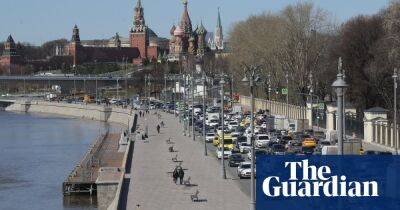A new confidence: the east German economy finally gets a boom
In over 30 years since the fall of the Berlin Wall, eastern Germans have been told several reasons why they lag behind the west: an uncompetitive industry, a lack of jobs, a shortage of young workers.
But Germany’s new government believes the formerly socialist “workers’ and peasants’ state” is missing something else: trade unions.
“We have too few collective bargaining agreements in the east, too little democracy in businesses,” Carsten Schneider, Chancellor Olaf Scholz’s appointee as federal commissioner for the east, told the Guardian in an interview. “For decades, workers in the east have been told to start queueing at the back, and it drives me crazy when I see how some of them have internalised that.”
In the old German Democratic Republic, the dominant trade union was controlled by the ruling party and industrial action was effectively banned. Nowadays, only about 40% of its workforce is paid according to collective bargaining agreements, compared with 50% in the more prosperous west. Schneider, a Social Democrat from Erfurt in the south-eastern state of Thuringia, says it is his aim to close the gap.
“The dentist who has a Land Rover parked outside his practice can only afford that because his assistants go home with €1,800 a month before taxes and don’t dare to ask whether they shouldn’t start to earn a bit more,” he said. It marks a sharp change of tone from the top of German government after a 16-year period in which Angela Merkel’s conservatives championed lower wages in the east as a locational advantage. It is also part of a broader attempt to talk a more upbeat game about a region whose economic performance is starting to belie its reputation.
“There is a new generation with a new self-confidence when it comes
Read more on theguardian.com


 theguardian.com
theguardian.com


















